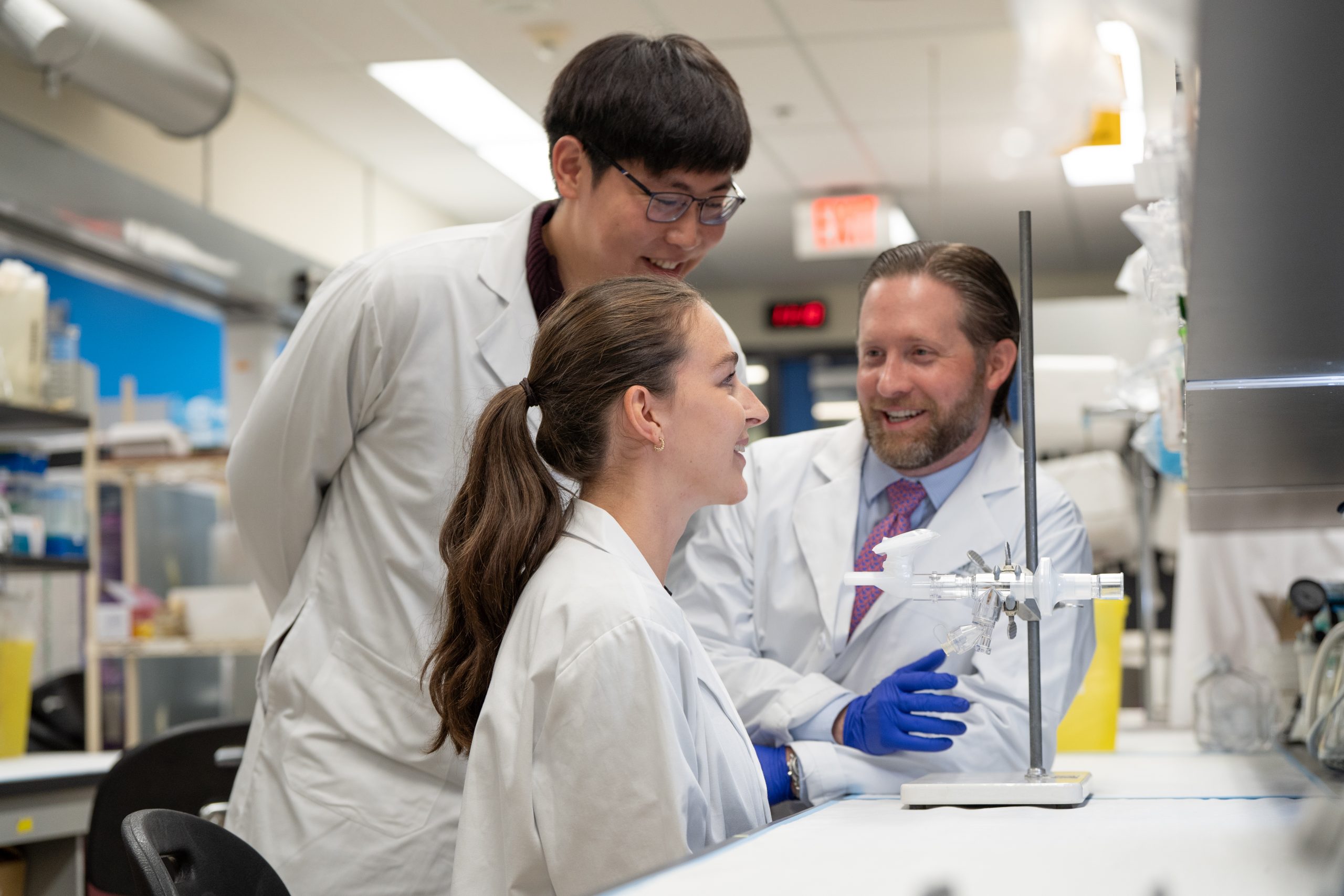Bridging the gap between patients and the laboratory

As part of the Global Nexus team developing a new inhaled COVID-19 vaccine, Ali Zhang understands how science in the lab saves lives. But he’s also a medical student who appreciates how patients in the clinic inspire work in the lab.
“I hope to lead a laboratory for fundamental science while also caring for patients as a physician,” says Zhang, a student in McMaster University’s MD/PhD program. “That way, I can better appreciate and understand pertinent issues that patients face and direct my research interests more effectively towards addressing their problems.”
A next-generation physician-scientist
Zhang’s connection with patients during the pandemic affirmed his commitment to using science to protect communities and improve people’s health. “I was extremely excited to be part of the team working to better understand a novel and devastating virus that has been wreaking havoc across the world,” says Zhang. “I felt privileged to have the opportunity to contribute, and hope to continue to address current and future issues in healthcare.”
Recently, the Global Nexus research team working on the new inhaled vaccine received more than $8 million from the Canadian Institutes for Health Research (CIHR.) The funding will enable researchers to proceed with Phase 2 human trials.
Zhang is inspired by the promise of the new inhaled vaccine because it will be more appealing for people afraid of getting shots. In the bigger picture, inhaled vaccines will also be more accessible and cost-effective because they can be administered without a healthcare practitioner.
Research project with global impact
Early findings show the inhaled aerosol vaccine is far more effective at inducing protective immune responses?than traditional injected vaccines. This is partly because it targets the lungs and upper airways where viruses first enter the body, providing long-lasting protection against respiratory infections.
Zhang points out that the Global Nexus inhaled trivalent COVID-19 vaccine is also likely to remain effective against future strains of the SARS-CoV-2 virus as it mutates and evolves.
“Having the opportunity to work on such an impactful project has allowed me to appreciate the work and energy required to succeed on a project of this scale. I learned a ton about immunological considerations for vaccine design, experimental design, and other lab skills,” says Zhang.
While the lab skills are invaluable, Zhang adds that learning from globally renowned mentors like Matthew Miller, the Scientific Director of the Michael G. DeGroote Institute for Infectious Disease Research, and Dawn Bowdish, professor of medicine and lead of the Braley Fellows program was vital to his development as a physician-scientist deeply committed to community.
Other mentors like Dr. Ryan Van Lieshout, the director of MD/PhD program, provided Zhang with support and advice on navigating the program, while counselling and peer-to-peer and physician mentorship helped Zhang feel “flooded with support” during the demanding graduate program.
“These relationships are so valuable, especially during the earlier stages of career exploration,” says Zhang. “It’s impossible to anticipate the full extent of what the career entails, but the conversations with those who have been through it all certainly helps.”
In the News
